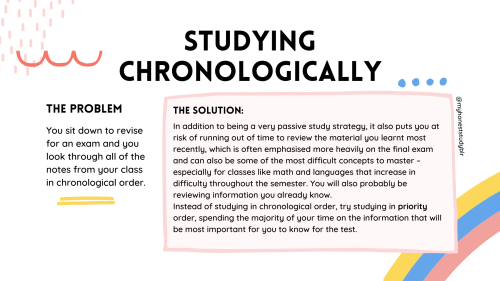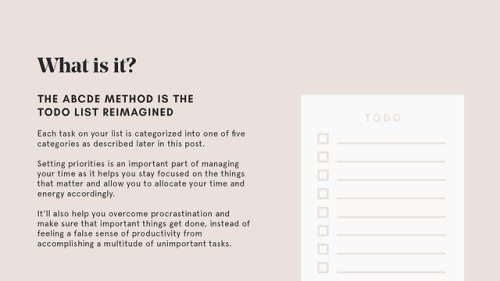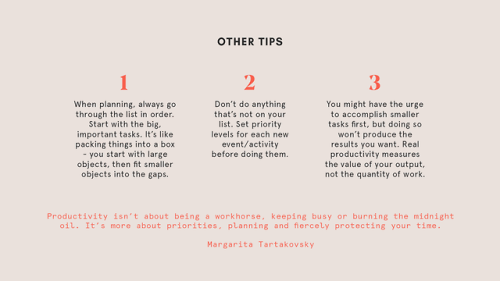Simple Ways To A Fresh Start
simple ways to a fresh start
• reorganize the furniture in your bedroom
• clean your room
• delete apps, contacts, etc from your phone that you no longer need or use
• change your phone wallpaper
• take your journal to a spot you’ve never been to around town // spend time reflecting while there
• sell or donate a few clothes you haven’t worn in a year (or even half a year)
• make a list of your goals // pin it to wherever you’ll see it most often to remind yourself where you’re headed
More Posts from Amandadiamond and Others

I miss you so much…😢 r.i.p. my endless love Loki ❤ (? - 2018)
the no bullshit guide to getting your shit together: for the lazy student
Let’s be honest: time management and organization? They’re really hard. Sure, at first you might feel like you’ve gotten the hang of them, that you’re in control of your life. But how often have you fallen off the wagon? Procrastinated on one thing and the next moment, you’re behind in all your classes? I know that sometimes laziness feels like a part of who you are, but honestly, fuck that. Do you really want to give up your success for the disinterest of a moment?
If your answer is no (it better be no, or you really need to get your priorities straight), let’s get to it.
STEP ONE: BE HONEST WITH YOURSELF
“This class doesn’t even matter.” “I don’t care about my grades.” “I can finish this the day before.” Sound familiar? You might feel great now, but when you’re staring down at your report card later, it’ll feel like you just got punched.
This is a cliche, but the greatest obstacle to your success is yourself - especially the lies you tell yourself! Sit yourself down and be honest about what you need to improve on. Be as blunt as you can, but for god’s sake, don’t throw yourself a pity party! There’s no use agonizing over what you can’t change. Instead, set realistic, achievable goals, and make a game plan. Struggling with math? Go to extra help. Behind in all your classes? Stay in for a couple nights and actually work.
STEP TWO: STOP WITH THE FANCY SHIT
Now you know what your goals are, but maybe you want some inspiration, so you log on to tumblr and are instantly bombarded by all these beautiful, well lit shots of the most gorgeous bullet journals, planners, and notes. Impressive, right? Well, I’m gonna let you in on a little secret: they’re all useless! A simple phone planner works just as well, if not better, than a fancy agenda, because you’ll always have it on you, it’s not a hassle to carry around, and you don’t feel obligated to make it look pretty.
Riddle me this, where are you going to find all this extra motivation to keep prettying up your bullet journal? To write all your notes in perfect, colour coded printing? There aren’t many times in life where taking the easy was out will actually benefit you, so take advantage! Stop wasting your time; get a phone planner and write your notes in your natural goddamn handwriting.
STEP THREE: CLEAN YOUR ROOM
Yep, your entire room - not just your study space! This one can be put on the back burner for a bit if you’re on a really pressing deadline, but I wouldn’t recommend it. I’m notoriously messy, and if I don’t watch myself, I’d find myself in dirty-laundry-and-old-notes hell. A little bit of organized chaos is fine, I even encourage it! But try working when your desk is covered in mounds of paper and you have nowhere to put your laptop – it’s just not conducive to success.
Keeping your entire room clean is a way to stave off stress, frustration, and even embarrassment, because nobody wants to show potential roommates how much of a mess they are.
STEP FOUR: ACTUALLY WORK
Yeah, I know what you’re thinking: “actually work? Who does this girl think she is?” I’d probably think the same thing, except I’ve learned the valuable lesson of sucking it the hell up, and you will too. When you get home from work, grab a snack and work. When you have a free period, figure out what’s due and work. Stop reasoning yourself out of work: you’re not going to finish this later, and that will be on the test. There’s really not much to say about this one, because it’s the step that requires the most raw effort, and you’re really only going to find that within yourself. Tell yourself what’s at stake, and realize that, by setting the standard for your mediocrity now, you’re potentially trapping yourself in a cycle that will last for years.
STEP FIVE: CUT YOURSELF SOME SLACK
Maybe you’ve been on top of your shit for a day, a week, or even a month, and that’s really great. But then… you fail. You miss a deadline or you bomb a test. So what do you do now? Do you allow yourself to fall back into your old habits? Fuck no! Everyone fails, even that studyblr with those perfect bullet journal photos and a perpetually clean study space. I’m going to tell you something that’ll sound really strange: you should value your failures, especially if you worked hard to avoid them. What?! Be HAPPY about failing when I actually TRIED? Yeah, you heard me right. If you don’t know how to handle failure, then when you inevitably experience it, your reaction will be much worse.
Failing hurts, and boy, I know how embarrassing it can be. But learning how to deal with failure, and especially how to keep trying after it happens, is an invaluable lesson.
STEP SIX: TREAT. YO. SELF.
Disclaimer: I’m not suggesting you treat yourself after the most basic of tasks, because please. Treat yourself when you know you goddamn well deserve it. Remember that “all work and no play makes jack a dull boy.” If all you do is study and do your homework, then, pardon my french, your life sucks. If you don’t have friends, play a video game! Eat an entire jumbo chocolate bar! Indulge in whatever the fuck you want, you deserve it. I’m someone that has trouble prioritizing future benefits over immediate gratification, so by allowing myself little pleasures, I save myself from crashing and burning.
Hope these tips helped, but remember to take them with a grain of salt - you’re you and I’m me, and different things work for different people. Good luck!

hi everyone! since the holidays are over for most of us, i thought i’d make an inspirational and motivational masterpost all about notes! upgrading your notes by changing the layout, adding doodles, banners, using sticky notes, changing your handwriting etc. motivates me personally to study!
out with the sloppy last minute notes and in with the new!
handwriting
how to write in cursive
some fonts to try out
how to improve your handwriting
note taking systems
study methods summed up
stationery to make it all happen
sticker printables to jazz it up
notes
how to take lecture notes
how to annotate books
taking notes from a textbook - studyign
note taking system - theorganisedstudent
note taking system - emmastudies
another note taking system - academicmind
another note taking system - wonderfullifee
the 2 notebook method
note taking with highlighters and post its
pretty timelines
note taking printables
plot summary with sticky notes
20 uses of sticky notes
colour code your notes
method with columns
the cornell note taking system
the cornell note taking system using onenote
in class notes
another in class note taking format
what are sketchnotes?
online whiteboard
flashcards
how to make flashcards
another how to make flashcards
an example
another example (with sticky notes)
and another example (biology)
8 ways to improve your flashcards
make and test flashcards online
alternative to flashcards - studyign
print onto flashcards
mindmaps
how to mindmap (1)
how to mindmap (2)
some examples
apps
notability
banners
simple banner
more banners
it’s a banner party over here
banners (shown how to draw in gifs)
illustrate your notes
how to illustrate your notes - reviseordie
sketchnote tips (banners, lettering, doodles)
more sketchnote tips
even more sketchnote tips
how to make your notes pretty - theorganisedstudent
how to make your notes pretty - studyspoinspo
how to make your notes pretty - booksflowersandtea
what is visual note taking?
a visual alphabet
note taking printables
dot grid
note outline printables
lined cornell method printable
grid cornell method printable
hope you all had a good rest and are ready for a new year of studying!
xoxo lou










my masterpost | my studygram | ask me anything
[click images for high quality]
[transcript under the cut]
Other advice posts that may be of interest:
How To Study When You Really Don’t Want To
Active Revision Techniques
How To Do Uni Readings
How to Revise BIG Subjects
Keep reading









The ABCDE Method: Accomplish Tasks more Efficiently
I recently came across the ABCDE method that’s similar to what I do to stay productive each day: instead of lumping up all your tasks, sort them into categories and tackle each of them differently. Here’s an outline of the method. Hope it helps :)
self discipline tips
here are tips I discovered very recently:
something is better than nothing. 5 minutes of work are better than zero. Just because you missed something on your schedule doesn’t mean you can’t still work on it, even for 5 minutes. Grow and build on this.
second drafts / reviews can be done after.
Don’t think you are going to do your very best work on the first try. Take the weight of perfectionism off your shoulders.
don’t think about doing it. just do it as fast as you can.
build on your productivity, not your failures.
If you come from a past of procrastinating and now feel motivated to change and discipline yourself, do NOT try to do everything at once.
if you have a set of different goals to accomplish, begin with the most important one. Wait until the rotine of working for that one settles in (you feel productive and comfortable-ish), and then begin with the next. Repeat.
this way you’ll be building your way up and not juggling everything at the same time, hoping everything works out.
be patient with yourself, you’ll get there!
set smaller deadlines for your goals
have monthly and weekly-ish deadlines
e.g. if you are doing a project, due 22nd Feb, set personal deadlines, like have Introduction written by 2nd Feb, have Methods written by 10th Feb, have project complete by 18th Feb.
take them as seriously as you possibly can, don’t miss out on yourself.
write realistic daily tasks and don’t stop until you finish them. after them you can do whatever you want
on writing realistic daily tasks, the secret is knowing you can only do so much in one day, but trusting you can accomplish everything in the course of any period of time (a week, or 2 weeks or a month, etc.) because you will combine the work from all these different days.
it’s very tempting to write down all the tasks you need to accomplish in one day to just get over with it, but the real deal is you won’t accomplish half of them. You’ll feel very unproductive then, wich leads to demotivation.
spread daily tasks in the time necessary.
have a consistent sleep schedule.
if your mind isn’t ready everything will fall apart.
have one rest day per week where you plan nothing, do whatever you want except studying. this can be harder than you expect!
(don’t forget these are effective only if you actually put them into practice! good luck babes!!)
How to Deal with Study Burnout

As students in this day and age, it’s quite common for us to juggle rigorous academic responsibilities and overwhelming extracurricular activities. As a result, we might feel burnt out. But what exactly is burnout?
Burnout is when you feel physically and mentally exhausted as a result of constantly lacking the energy required to fulfill the demands of your studying.
Burnout can be broken down into three parts:
Exhaustion is what causes you to feel tired all the time and unable to concentrate. You could also get sick or have trouble sleeping.
Cynicism or depersonalization is when you feel disconnected from those around you, e.g. your friends and family.
Inefficacy is a decrease in productivity, efficiency, or quality of your work.
How do you know if you have burnout?
Symptoms may vary, but they include:
Being unable to absorb new information
Intellectual exhaustion
Decreasing academic performance and productivity
Feeling like you need to prove yourself
Making yourself work even more, even though you’re exhausted or being unwilling to study further
Neglecting your needs
Long term fatigue
Showing disinterest in things you normally enjoy, e.g. hobbies or friends
Denying that something’s wrong with you (may manifest in the form of aggression)
Avoiding social interaction
Feeling empty and depressed
What can I do to fix it?
Here are some short term solutions for dealing with burnout.

1. Take a power nap Power naps are life changing. They help you recharge your energy and get you ready to start working again. They also improve learning, memory, creativity, alertness, and mood. I would recommend napping for 30 minutes at most, because anything more will lead to a longer sleep session.
Optional: drink coffee before your nap - something that takes a short while to consume like a shot of espresso - so that you’ll feel alert and revitalized afterwards!
2. Take a shower A cold one will wake you up, but a warm one will calm you down. I suggest starting with warm water, then ending with cold water.
3. Exercise Whether it’s playing soccer or doing yoga, the important thing is to get moving! Exercise releases endorphins or happy hormones that help you combat stress.
4. Run a quick errand This will help take your mind off things while also getting something done! You’ll also end up walking, which is technically a form of exercise.
5. Call or visit a friend Sometimes what we’re lacking is social interaction, and hanging out with a friend definitely helps. Whether it’s providing you with a distraction or giving emotional support, your friends are always there to help you. Plus, science has shown that being with friends reduces your cortisol (stress hormone) levels.
6. Eat a snack Preferably a healthy one. Eat something with proteins, vitamins, and fibers to boost your mood. Here’s a list of mood boosting foods.
7. Surf the web This requires A TON of discipline, but it’s definitely a game changer. Surfing the web is one of the most relaxing things you could do. I personally look for a good laugh during my study breaks, so I’d watch a comedy or scroll through memes to get those happy hormones up and running.
8. Do an activity you find interesting, e.g. a hobby We all need happiness in our lives, and our hobbies are perhaps the best way to find that joy. You could sit down with a page turning adventure, or go outside and shoot hoops, or listen to a podcast, or even bullet journal, as long as you’re having a good time.
9. Listen to music Music is one of the ways we gain energy, so I always make time for it during the day. However, you should choose the right music, because not all the music you love is going to make you feel energized. For me, it’s pop punk with hard hitting beats, thundering guitars, and really upbeat, enthusiastic vocals. Some of you might be energized by mellow music with dreamy vocals that make you feel like you’re floating in the clouds. If you choose the wrong music, you might just end up feeling sluggish and drained.
10. Get some fresh air Your brain needs 20% of the oxygen in your body. Fresh air brings more oxygen to your brain so that you can think more clearly, feel less tired, and concentrate more easily.
How do I make sure I don’t get it in the future?
Avoiding study burnout in the long term has a lot to do with our study habits - as well as our daily habits. We need to make sure that our bodies and minds receive the things they need, and that we aren’t overworking them.

1. Study a little at a time Break up your notes into smaller, more easily digestible pieces and learn a little at a time. This way, you’re not overwhelming your brain, and you have time to let that new knowledge settle in.
2. Time management Having a good study schedule is crucial in preventing burnout. You don’t want to force yourself to work at your slow hours. Aside from that, you definitely shouldn’t leave things until the last minute, and sticking to a schdule will help you pace yourself. Here’s a post I wrote on How to Make an Efficient Revision Schedule and How to Beat Procrastination.
3. Get enough rest I cannot stress enough that sleep is so important for you. It improves your cognitive functioning and also enhances your mood, making it less likely that you’ll get burnt out. Make sure to take power naps, too, if you feel like you need them.
You also really shouldn’t pull all-nighters. Sleep is also involved in cementing memories in your brain, so if you study a little before you sleep, you’re bound to remember more than if you studied a chapter during an all nighter.
Having trouble sleeping? Here’s a post I made about my night routine and how to get better sleep.
4. Cycle your study environments Your body and mind are bound to get tired from being in the same location for prolonged periods of time. The best way to fix that is to study in different places: at your desk, your backyard, the dining table, a cafe, a friend’s house, the library, etc.You should find a frequency that works for you. I like to switch it up every 2-3 days; some people change locations every week.
5. Eat well As I’ve mentioned before, healthy foods with protein, vitamins, and fiber greatly improve your mood and your physical health. Proper nutrition will give your brain the power it needs to push through. Also make sure not to skip meals; honestly you’ll just end up feeling terrible afterwards.
6. Take frequent breaks Let’s face it, we’re human, we’re bound to get tired from studying for a long time. Taking breaks enables our brains to digest the information we just learned in a pace that works for it. Breaks also help us focus on something other than studying, so that when we do get back to it, we’ll be ready to digest even more information.
7. Set realistic study goals You’re gonna memorize all 500 pages of your biology textbook in one day? Good luck with that. Some of you might be compulsive studiers, but this kind of habit isn’t very good for your brain or your physical health. Studies have shown that excess studying can lead to lower productivity, fatigue, and - you guessed it - burnout. In the end, this will result in lower academic performance, perhaps even in the long run. So instead of trying to study so much in one sitting or one day, break up your material into chunks.
8. Maintain your social life Wherever you lie on the introvert-extrovert spectrum, everyone needs social interaction once in a while. It keeps you sane and healthy. Go out with your friends, have a sleepover, or maybe even a study date.
9. Start the day right What we do in the morning can significantly affect our mood for the rest of the day. Sometimes we don’t even feel like getting up in the morning, or doing anything that day. One thing you should do is create a morning routine you enjoy to jumpstart your day. Here are 8 Morning Habits for Productivity.
10. Think positive When we’re feeling burnt out, it’s hard to not think negatively about everything. In reality, that just makes our condition worse. So think positively! Start small, like congratulating yourself for getting out of bed today, and then work your way up to bigger accomplishments, like finishing 2 chapters of your textbook.
11. Keep a stress diary This is kind of a new concept for me, but it’s really great. How it works is that each day, you would write down all the things that made you stressed and how they made you stressed. This will help you identify the things you’re doing that’s causing your burnout, e.g.
Too long study hours? take regular breaks
Too much time in the same place? cycle your study environment
Not eating properly? set aside time to eat healthy meals at least 2 times a day
Not doing the things you love? schedule in time for that, e.g. during your long breaks
Not getting enough human interaction? make a study group
Too much negative thinking? adopt a positive mindset (you can always start small)
Not getting enough sleep? fix your sleep schedule
And that’s all I have for you guys this time. Hope these tips will help you manage your stress and study burnout whenever you have them. And if you have any questions, don’t hesitate to drop an ask!
P.S. if any of you want to see the images in this post in better quality, click here (link to google drive)
Making the perfect study plan
Exams are getting closer and now is the perfect time to create a solid study plan to get motivated and be productive. Here are some tips to help you making your study plan!
You don’t need a fancy planner. You can just use Excel to create it as you like and it will be more than enough!
Make a list of all the topics you have to study and gather similar subjects in the same category. Then, classify them by priority order.
Estimate the amount of time you’ll need to study each topic. Don’t underestimate it : you have to take all the time you need to understand and memorize, otherwise you’ll end up rushing things up and not being productive enough. I remember adding 1 hour more than I thought I would need so I could have plenty of time to go deeper in the subject without stressing myself out.
Know when you’re the most effective and do the hardest tasks in that moment. Keep the lighter subjects for the rest of the day. When I was doing my first med school year I would always study chemistry and physics in the mornings and the rest in the afternoon and evening !
Plan your breaks and meals. If you want to watch an episode from your favorite TV show, plan it. Your free time is important too! Make to create time for daily activities that fulfill you :)
Plan your delay! Set a day in your planner where you just catch up on everything you’re late on so you don’t get super stressed if your study day didn’t go as planned ! I always use my Sundays as « delay days » haha
If you have enough time, try to plan review sessions of the topics you’ve already seen. When I was studying anatomy I would make review sessions one day a week so I could memorize in the best way possible.
Also, plan a day or half a day to test yourself. Do it early enough to re-adjust your study plan if you feel like you have to spend more time reviewing a certain topic!
And you, what are your “planning habits”? Do you use a planner ?
Please reblog and like this post if you want more tips like this one!
self discipline tips
here are tips I discovered very recently:
something is better than nothing. 5 minutes of work are better than zero. Just because you missed something on your schedule doesn’t mean you can’t still work on it, even for 5 minutes. Grow and build on this.
second drafts / reviews can be done after.
Don’t think you are going to do your very best work on the first try. Take the weight of perfectionism off your shoulders.
don’t think about doing it. just do it as fast as you can.
build on your productivity, not your failures.
If you come from a past of procrastinating and now feel motivated to change and discipline yourself, do NOT try to do everything at once.
if you have a set of different goals to accomplish, begin with the most important one. Wait until the rotine of working for that one settles in (you feel productive and comfortable-ish), and then begin with the next. Repeat.
this way you’ll be building your way up and not juggling everything at the same time, hoping everything works out.
be patient with yourself, you’ll get there!
set smaller deadlines for your goals
have monthly and weekly-ish deadlines
e.g. if you are doing a project, due 22nd Feb, set personal deadlines, like have Introduction written by 2nd Feb, have Methods written by 10th Feb, have project complete by 18th Feb.
take them as seriously as you possibly can, don’t miss out on yourself.
write realistic daily tasks and don’t stop until you finish them. after them you can do whatever you want
on writing realistic daily tasks, the secret is knowing you can only do so much in one day, but trusting you can accomplish everything in the course of any period of time (a week, or 2 weeks or a month, etc.) because you will combine the work from all these different days.
it’s very tempting to write down all the tasks you need to accomplish in one day to just get over with it, but the real deal is you won’t accomplish half of them. You’ll feel very unproductive then, wich leads to demotivation.
spread daily tasks in the time necessary.
have a consistent sleep schedule.
if your mind isn’t ready everything will fall apart.
have one rest day per week where you plan nothing, do whatever you want except studying. this can be harder than you expect!
(don’t forget these are effective only if you actually put them into practice! good luck babes!!)
10 tips to increase your motivation for study
Motivation is one of the biggest issues for students and it is always great to find a few things that can keep you feeling inspired. Here are my top ten ideas:
start small - set yourself a challenge to work for five to ten minutes. Yes, just five minutes can be enough to get started! If you can get through that five minutes, you will start breaking down that feeling of disinterest and begin to get more into working. A fantastic application that will keep you from using your phone and on a time limit of between 10 minutes and two hours is Forest! However, here are some free alternatives.
plan tomorrow today - I find planning my day - or at least writing down a couple of tasks - before bed is extremely beneficial. In the morning I wake up with intent and get see my main priorities. They don’t have to full-fledged plans or written nicely in my planner but even just small reminders on a post-it note are enough for me to feel more organised.
give yourself a bit of structure - as mentioned, having a plan is a great way to start the day. You might use a planner, a bullet journal or a free printable from me to organise! Set yourself up with 3 key things to finish or do during the day. Give yourself a goal and a reward upon completion. Put time limits on tasks and use a schedule to stay on track.
utilise a studygram/studyblr - basically, the communities on Tumblr and Instagram act as amazing accountability partners! I am constantly motivated by my blog and being able to share my day to day life on Instagram or Snapchat. I definitely have become incredibly motivated and disciplined because of these two communities. If you’re thinking about starting a studyblr, read this. If you’re thinking about starting a studygram, read this. If you already have either, here is how you can use it to further motivate yourself!
set up an inspiring workplace - dedicating a space to work, and only work, is a great way to build a mindset of motivation which kicks in when you sit down. This Pinterest board has loads of inspiration for setups and organisation! You can also add a cute plant, a bright study lamp and some motivational printables for added encouragement!
externalise your short and long-term goals - by making a verbal or written commitment to your goals, you are much more likely to take steps to follow them through. You might want to have a really productive week catching up on all your work, improve your GPA or pass your semester with flying colours. At the start of each week think of the ways you can put your goals into actions. Then at the end of the week reflect on how you did. Track your progress and keep up your motivation by seeing things get a step closer each time!
listen to some music - putting on my favourite songs always put me in a better mindset and feeling more positive. Before a study session or during a break, I will sometimes put on a few songs I’m loving and take a moment to refocus.
don’t force it - if you’re feeling unmotivated to study, try doing something else for a short amount of time. Avoid things that could distract you like browsing Facebook or Instagram. Instead, try tidying your bedroom, organising your upcoming week, read a chapter of a book, or get a drink of water. Alternatively, make an action plan for what you need to do with your next few tasks. That way you’re still making progress with your work but aren’t sitting feeling too unmotivated to actually study.
find some inspiration - there is no shortage of amazing people with incredible stories of success! Podcasts such as The Daily Boost, The Tony Robbins Podcast and The School of Greatness are great examples. Ted Talks are often incredibly insightful and motivating! Search for quotes or stories from your favourite people!
change your mindset - one of the biggest challenges in motivation is adjusting your own perspective. For instance, instead of thinking “I am terrible at this” think “How can I learn this differently to really understand?”. “I made a mistake” think “What can I take away from making this mistake?”. “It isn’t perfect” think “These perfectionist tendencies are only making this more difficult, I can be content with my work”. Having a more positive outcome to each situation should help boost your confidence and motivation!
I hope these few tips are useful and help improve your motivation! If it helps, I would love to hear about it :-)
Other posts | Printables | Instagram | Youtube | Pinterest | Etsy Shop
-
 skinnydiariesxoxo liked this · 1 month ago
skinnydiariesxoxo liked this · 1 month ago -
 solianapaeris reblogged this · 1 month ago
solianapaeris reblogged this · 1 month ago -
 sleepydreameroncloud9 liked this · 2 months ago
sleepydreameroncloud9 liked this · 2 months ago -
 solianapaeris liked this · 2 months ago
solianapaeris liked this · 2 months ago -
 wtsnselixir reblogged this · 1 year ago
wtsnselixir reblogged this · 1 year ago -
 z3nko-kitsune liked this · 1 year ago
z3nko-kitsune liked this · 1 year ago -
 ccheeenaa liked this · 1 year ago
ccheeenaa liked this · 1 year ago -
 cstbunga liked this · 1 year ago
cstbunga liked this · 1 year ago -
 decaffeinatedpandawonderland liked this · 2 years ago
decaffeinatedpandawonderland liked this · 2 years ago -
 spacecatisforever liked this · 2 years ago
spacecatisforever liked this · 2 years ago -
 observing-quietly liked this · 2 years ago
observing-quietly liked this · 2 years ago -
 megane-geo liked this · 2 years ago
megane-geo liked this · 2 years ago -
 katzlab liked this · 2 years ago
katzlab liked this · 2 years ago -
 hiddeninyourhead liked this · 2 years ago
hiddeninyourhead liked this · 2 years ago -
 taglieben reblogged this · 2 years ago
taglieben reblogged this · 2 years ago -
 lalalopsi11 liked this · 2 years ago
lalalopsi11 liked this · 2 years ago -
 escapistfantasymanual liked this · 2 years ago
escapistfantasymanual liked this · 2 years ago -
 cirronimbusn reblogged this · 2 years ago
cirronimbusn reblogged this · 2 years ago -
 a-fox-in-a-world-of-wolves reblogged this · 2 years ago
a-fox-in-a-world-of-wolves reblogged this · 2 years ago -
 chaotic-toll reblogged this · 2 years ago
chaotic-toll reblogged this · 2 years ago -
 chaotic-toll liked this · 2 years ago
chaotic-toll liked this · 2 years ago -
 luli-luz liked this · 2 years ago
luli-luz liked this · 2 years ago -
 charlie-beez reblogged this · 2 years ago
charlie-beez reblogged this · 2 years ago -
 floatingvampire liked this · 2 years ago
floatingvampire liked this · 2 years ago -
 evansbuckleyy reblogged this · 2 years ago
evansbuckleyy reblogged this · 2 years ago -
 natalieraffa liked this · 2 years ago
natalieraffa liked this · 2 years ago -
 renee561 reblogged this · 2 years ago
renee561 reblogged this · 2 years ago
95 posts